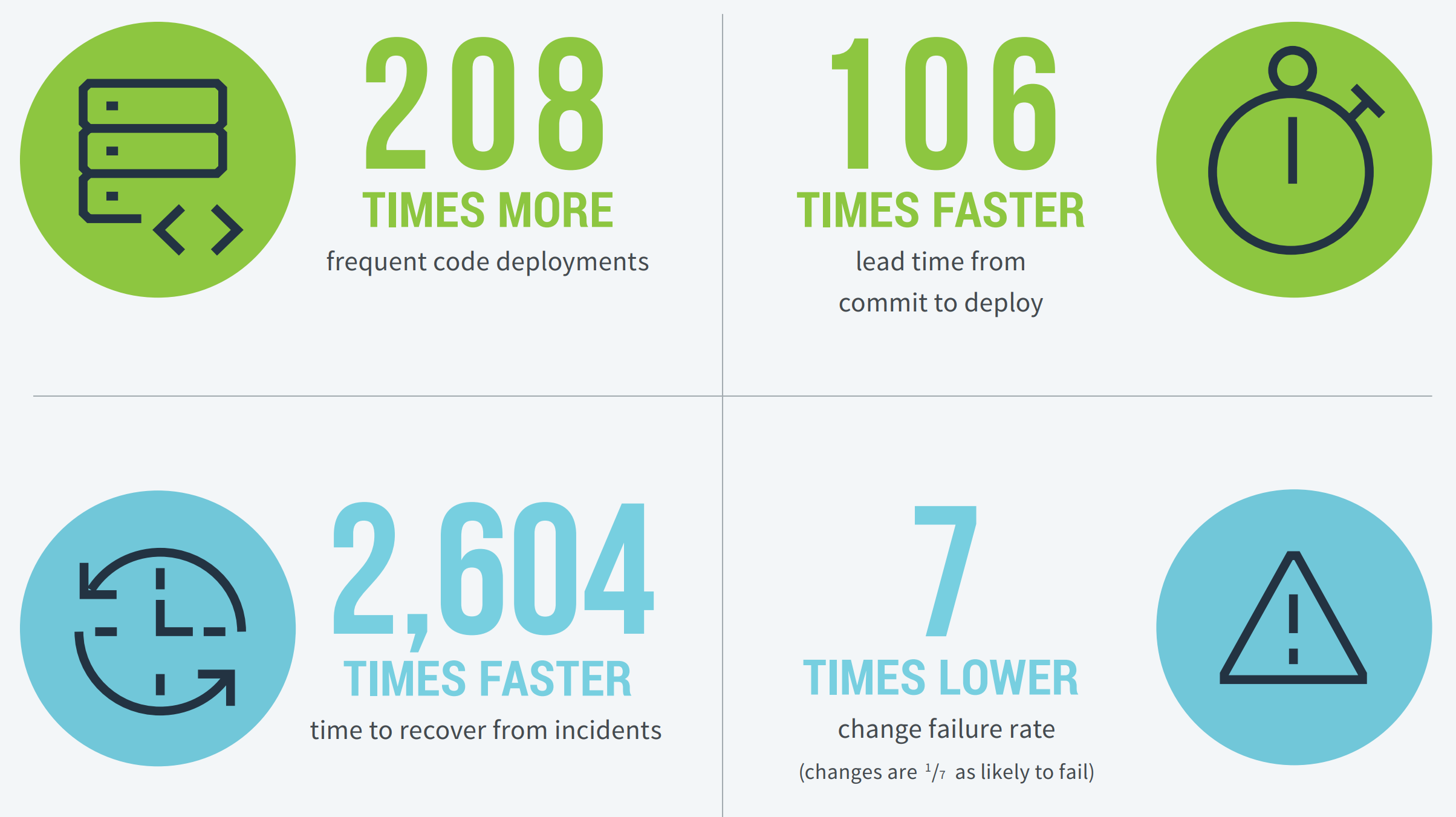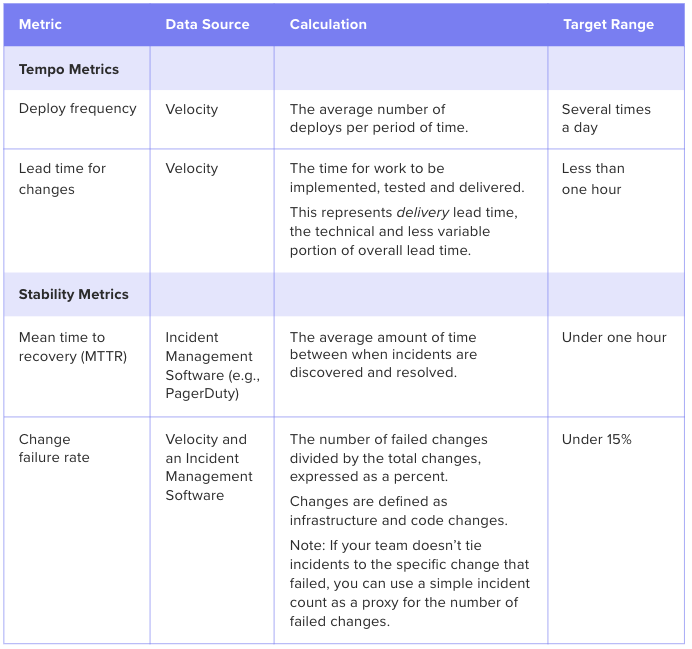State of DevOps 2019 Tells Engineering Organizations to ‘Excel or Die’
Last Thursday, DORA released their 6th annual DevOps report, identifying this year’s trends within engineering departments across industries.
The good news: a much higher percentage of software organizations are adopting practices that yield safer and faster software delivery. 25% of the industry is performing at the “elite” level, deploying every day, keeping their time to restore service under one hour, and achieving under 15% change failure rate.
The bad: the disparity between high performers and low performers is still vast. High performers are shipping 106x faster, 208x more frequently, recovering 2,604x faster, and achieving a change failure rate that’s 7x lower.

This is the first of the DevOps reports to mention the performance of a specific industry. Engineering organizations that worked within retail consistently ranked among the elite performers.
The analysis attributes this pattern to the death of brick-and-mortar and the steep competition the retail industry faced online. Most importantly, the authors believe that this discovery forecasts an ominous future for low performers, as their respective industries grow more saturated. They warned engineering organizations to “Excel or Die.”
There are No Trade-Offs
Most engineering leaders still believe that a team has to compromise quality if they optimize for pace, and vice versa– but the DevOps data suggests the inverse. The authors assert that “for six years in a row, [their] research has consistently shown that speed and stability are outcomes that enable each other.”
This is in line with Continuous Delivery principles, which prescribe both technical and cultural practices that set in motion a virtuous circle of software delivery. Practices like keeping batch size small, automating repetitive tasks, investing in quick issue detection, all perpetuate both speed and quality while instilling a culture of continuous improvement on the team.
Thus for most engineering organizations, transitioning to some form of Continuous Delivery practices shouldn’t be a question of if or even when. Rather, it should be a question of where to start.
The Path Forward: Optimize for DORA’s Four Key Metrics
The DORA analysts revealed that rapid tempo and high stability are strongly linked. They identified that high-performing teams achieve both by tracking and improving on the following four key metrics.

Tools like Velocity provide out-of-the-box visibility into key metrics like Deploy Frequency and Lead Time. The analytics tool also reveals underlying drivers, so software leaders understand what actions to take to drive these metrics down.
Try our engineering intelligence tool for free to see where your team can start working toward high-performance.